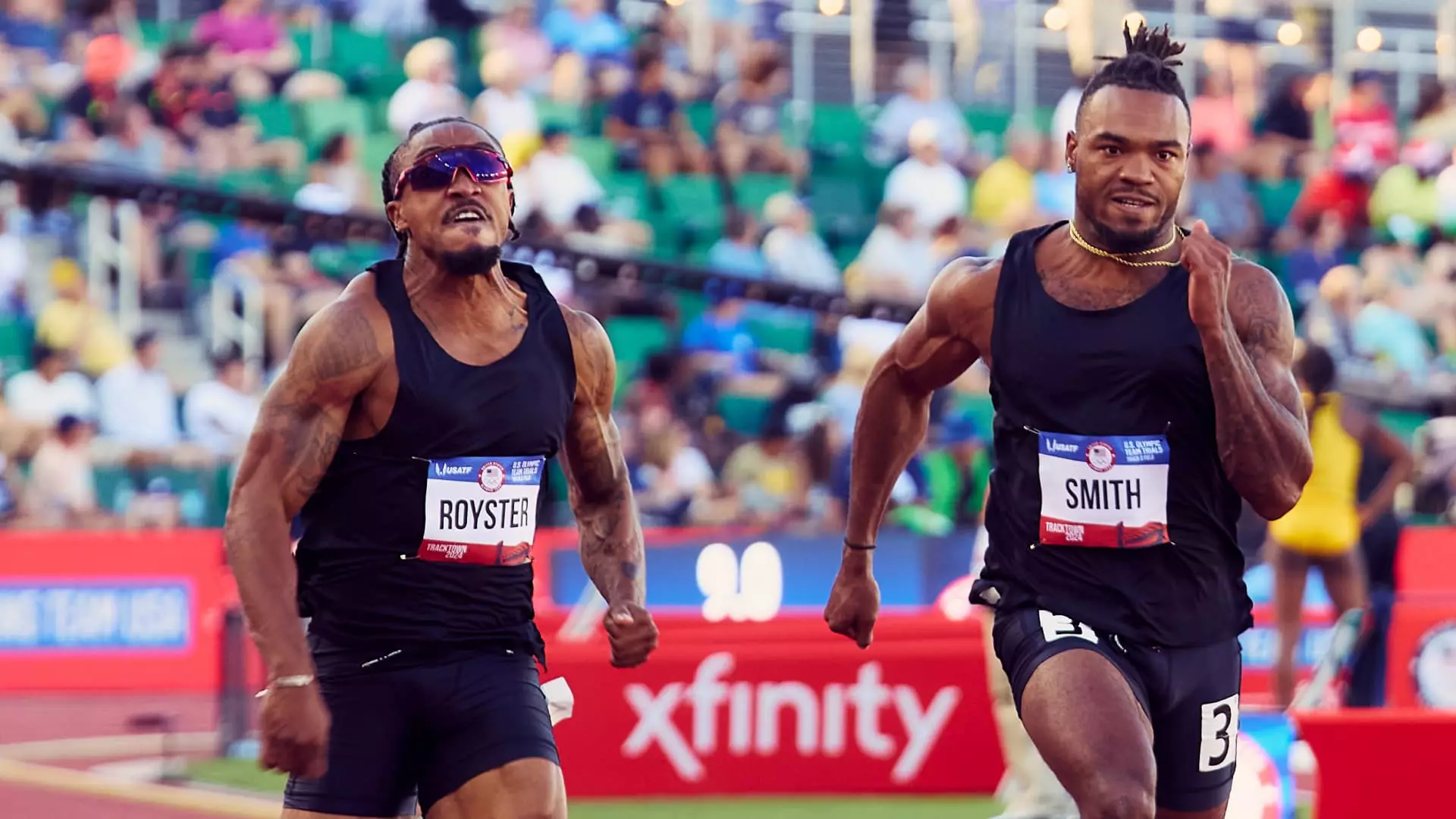Athletes competing at the U.S. Track & Field Olympic Trials this year are making waves not only for their impressive performances but also for their unique approach to sponsorship. The Unsponsored Project, spearheaded by apparel company Bandit Running, has taken a stand against the traditional sponsorship model by providing unsponsored athletes with logo-less, all-black gear. This initiative aims to challenge the status quo and support up-and-coming athletes in their quest for success.
Bandit Running is offering at least 35 two-week endorsement deals to unsponsored runners at the trials, giving them access to unbranded apparel, a platform, and financial assistance for expenses. This new sponsorship model is designed to empower amateur and sub-elite athletes by providing them with the support they need to compete at the highest level. Tim West, co-founder of Bandit Running, believes that lifting up athletes at the grassroots level will benefit the entire sport in the long run.
Athletes like Courtney Okolo, a 400-meter runner with a gold medal from the 2016 Rio Olympics, and Brandee Johnson, a 26-year-old track athlete working multiple jobs to pursue her Olympic dreams, have found solace and support in the Unsponsored Project. Okolo, who was previously sponsored by Nike, has embraced the opportunity to compete without a traditional sponsorship, thanks to Bandit Running’s initiative. On the other hand, Johnson sees the project as a lifeline that allows her to pursue her goals while making a positive impact.
Both Okolo and Johnson have shed light on the financial challenges faced by unsponsored athletes in the track and field world. Training, traveling to competitions, and purchasing gear all come at a significant cost, making it difficult for athletes to support themselves solely through their sport. While some athletes like Okolo have managed to secure sponsorships in the past, many others find themselves juggling multiple jobs while dedicating hours to training, hoping for a breakthrough.
Bandit Running’s Unsponsored Project represents a shift towards a more inclusive and supportive sponsorship model for athletes. By providing unsponsored runners with the resources they need to compete, the initiative is empowering athletes to focus on their craft without worrying about financial constraints. As more athletes like Okolo and Johnson join the movement, the future of athlete sponsorship in track and field looks brighter than ever.

Leave a Reply